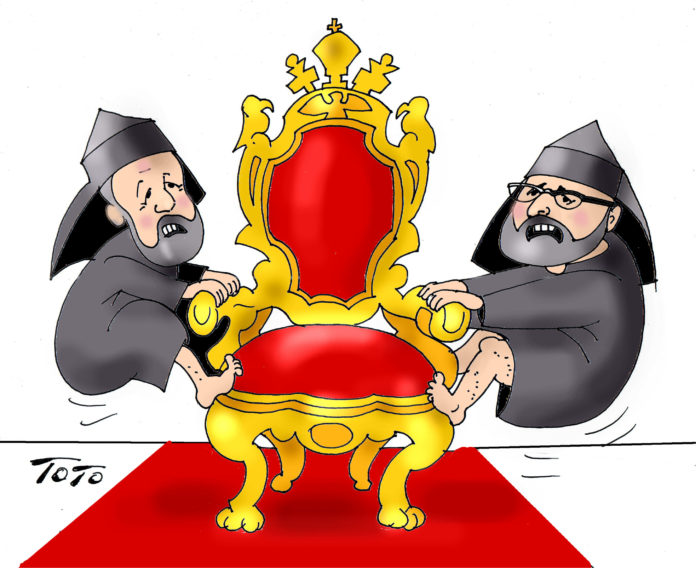By Edmond Y. Azadian
The Istanbul Armenian community is one of the most isolated in the diaspora, participating in minimal interaction with the rest of the Armenian communities around the world. Given the fearful atmosphere in which they are forced to live, it is logical that they try to avoid making waves in managing their community affairs. They are instinctively attuned to the political pendulum, which cyclically may swing from periods of freedom followed by periods of repression.
The Armenian community is recognized as a religious minority by the authorities in Turkey. For the last nine years, however, a time bomb has been ticking because of that classification. That time bomb began ticking when the elected patriarch, Archbishop Mesrob Mutafyan, was declared incapacitated and a race to succeed him began.
The vacuum created at the Patriarchate contributed to the confusion and chaos in the community. Two groups appealed to the authorities to obtain permission to elect a new patriarch or a co-adjutor patriarch. The government did not need any better excuse to extend the confusion by authorizing neither proposal.
In the interim, Archbishop Aram Ateshyan managed to appoint himself as a vicar by the Clerical Assembly, a religious body there which is beholden to him. That was an unusual step which the community believed it was temporary. However, Archbishop Ateshyan tried to extend the arrangement by ingratiating himself to the authorities. A blatant example was his simpering letter to President Erdogan after the German Bundestag voted to recognize the Armenian Genocide. He also abused his position for personal gain and tried to justify his abuses unabashedly. His delaying tactics paid off and his candidacy gained some traction. The authorities did not hide their sympathy towards the docile clergy which signified a nod to the affluent leadership of the community, whose business dealings depend entirely on the good will of the government. Thus, Ateshyan was heading towards an eventual fait accompli when the ticking time bomb blew out.
Indeed, there are three other announced candidates for the patriarchal election besides Ateshyan, namely Archbishop Sahak Mashalyan, Primate of Germany Archbishop Karekin Bekjian and Primate of Gougark Diocese in Armenia Archbishop Sebouh Chuljian. Of the three, Mashalyan was serving in Istanbul as the head of the Clerical Assembly. Exasperated by the foot-dragging by Ateshyan, he threw in the towel. He asked the Assembly to designate a final date for the election and the termination of Ateshyan’s term as vicar. When the Assembly declined his request, he decided to resign from all his positions, give up his candidacy and leave the country.








